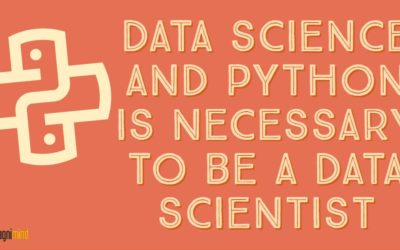According to various job advertisements for different data science positions, both Python and R belong to the most commonly mentioned and preferred skills. But a lot of studies have revealed that Python programming language is being used more by data scientists. But what exactly makes this language a preferred one for data scientists? In this post, we’ve tried to find out the answer.
What makes Python ideal for data science?
Here’re the key reasons why Python is being considered among the fastest-growing languages across the world.
- A complete package: Apart from being a general-purpose language, Python is tailor-made for every data analysis task. Data scientists need to use lots of algorithms for which the language is tailor-made as well.
- Easy implementation: For any data scientist it’s crucial to understand the language before going into intricate details of artificial intelligence or machine learning. Since Python is popular as a beginner’s language and doesn’t come with a steep learning curve, they don’t need to think about spending time on learning how to code using this language. Python programming language is popular for making programs work well with the minimal lines of codes possible. This simplicity is one of the biggest factors that have helped Python achieve this place.
- Libraries and scalability: All the libraries preferred by data scientists are available in Python. It also comes with a significant number of exclusive libraries. In addition, Python has become the best scalable language as one can develop concrete applications with ease. This feature is ideal for data scientists working to develop certain data analysis applications and models.
- Massive community: Python is accompanied by a robust community. This community is highly cooperative and there’re people who’re making the job of data scientists easy by helping them in different ways. If you’re a data scientist and experiencing some issues related to Python, most likely you’ll get the answer by presenting your query to a Python
Apart from all these, the ability to perform machine learning tasks is probably the biggest factor that has given Python programming language a solid edge over its competitors. It’s equipped with almost all the packages a data scientist may ever need. From scientific computing and statistical modeling to linear algebra and symbolic algebra, and many more – one can find the required packages readily available.
Keeping the above advantages of Python in mind, it can be said that it has become imperative for aspiring data scientists to obtain a Python certification. As a Python certification holder, you’ll be able to add tremendous value to your resume and to make the path of becoming a data scientist somewhat easier than those who don’t. In addition, if you’re looking to switch your career and step into the field of data science, it’ll be easier to demonstrate that you’ve got the requisite knowledge to manage various data-related projects when you’ve got a Python certification. And finally, as a certified Python professional, you’ll be able to get better jobs coupled with bigger salaries.
. . .
To learn more about data science, click here and read our another article.



